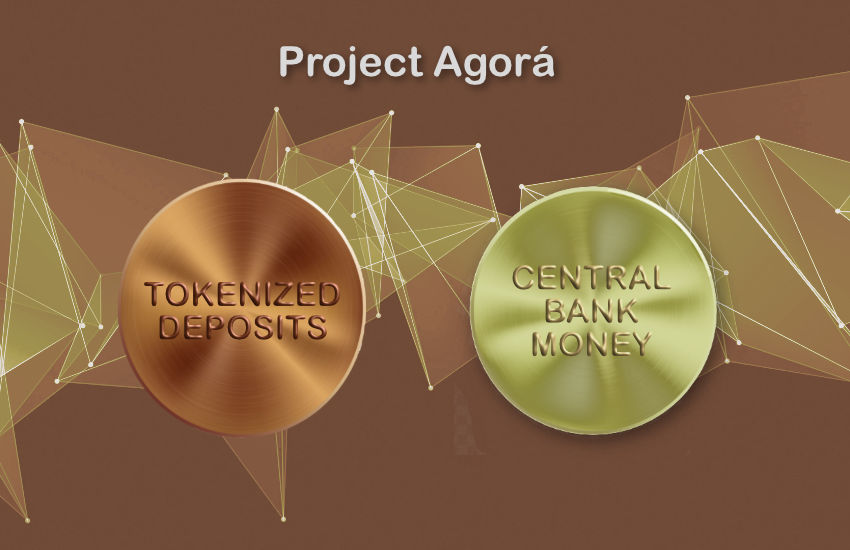
Key Takeaways:
Are you ready to explore the exciting world of central bank tokenization? This groundbreaking innovation is revolutionizing the financial landscape and offering unique opportunities for individuals and economies. In this article, we will delve into the incredible advantages of central bank tokenization and why it is essential to stay ahead of the curve.
The Rise of Central Bank Tokenization
In recent years, the rise of cryptocurrencies like Bitcoin has brought attention to blockchain technology and its potential. However, it is central bank tokenization that has truly stolen the spotlight as a game-changer in the financial industry.
Central bank tokenization refers to the process of digitizing traditional currencies and representing them as tokens on a blockchain. This technological breakthrough enables the issuance and tracking of digital currencies by government authorities, granting them greater control and reach over the financial system.
With central bank tokenization, traditional money can seamlessly integrate with the digital realm, creating new possibilities and ushering in a new era of finance.
The Advantages of Central Bank Tokenization
Central bank tokenization offers a myriad of advantages that can transform the way we transact, invest, and conduct business. Let’s explore some of the key benefits:
1. Financial Inclusion
Around the world, millions of individuals lack access to basic financial services. However, central bank tokenization has the potential to bridge this gap and promote financial inclusion.
By digitizing traditional currencies, governments can provide digital wallets to citizens who would otherwise be excluded from the financial system. This enables them to securely store and transact with digital money, empowering them to participate in the economy and improve their financial well-being.
Moreover, central bank tokenization can facilitate cross-border transactions, eliminating the need for costly intermediaries and lengthy processing times. This can greatly benefit individuals and businesses, especially in regions with limited access to traditional banking services.
2. Reduced Transaction Costs
Traditional financial transactions often come with significant costs, ranging from transaction fees to currency conversion charges. Central bank tokenization can dramatically reduce these transaction costs and save individuals and businesses substantial amounts of money.
With digital currencies, transactions can be executed directly between parties without intermediaries, minimizing transaction fees. Additionally, cross-border payments can be conducted swiftly and cost-effectively, avoiding excessive foreign exchange fees and delays associated with traditional banking systems.
By leveraging central bank tokenization, financial transactions become more efficient, affordable, and inclusive for all participants.
3. Enhanced Transparency and Security
Transparency and security are essential pillars of the financial system. Central bank tokenization can remarkably enhance both of these aspects.
The transparency of blockchain technology allows for real-time tracking and verification of transactions. Every digital token represents a unique record on the blockchain, making it virtually impossible to tamper with or duplicate. This ensures transparent and trustworthy transactions, reducing the risk of fraud and corruption.
Furthermore, the decentralized nature of blockchain technology reduces the reliance on a single point of failure, significantly enhancing the security of transactions and stored funds. This can protect individuals and businesses from cybersecurity threats and provide them with peace of mind.
The Implications for Traditional Banking Systems
The rise of central bank tokenization inevitably brings implications for traditional banking systems. As the digital economy expands and evolves, it is crucial for investors and financial institutions to stay informed about these developments.
While central bank tokenization has the potential to optimize financial systems, it may disrupt certain aspects of traditional banking. Commercial banks could face challenges as individuals and businesses opt for digital wallets issued by central banks, potentially reducing deposits and associated revenues.
However, this technology also opens up exciting possibilities for financial institutions that embrace innovation. Banks can explore partnerships with central banks, leverage blockchain technology for secure and efficient transactions, and develop new financial products and services tailored to the digital era.
Conclusion
The opportunities presented by central bank tokenization are truly groundbreaking. This innovative technology can enhance financial inclusion, reduce transaction costs, and improve transparency, ultimately transforming the way we interact with money. As an investor, staying informed about central bank tokenization is crucial to navigate the evolving financial landscape successfully.
Frequently Asked Questions
Source: insightfullgo.com

